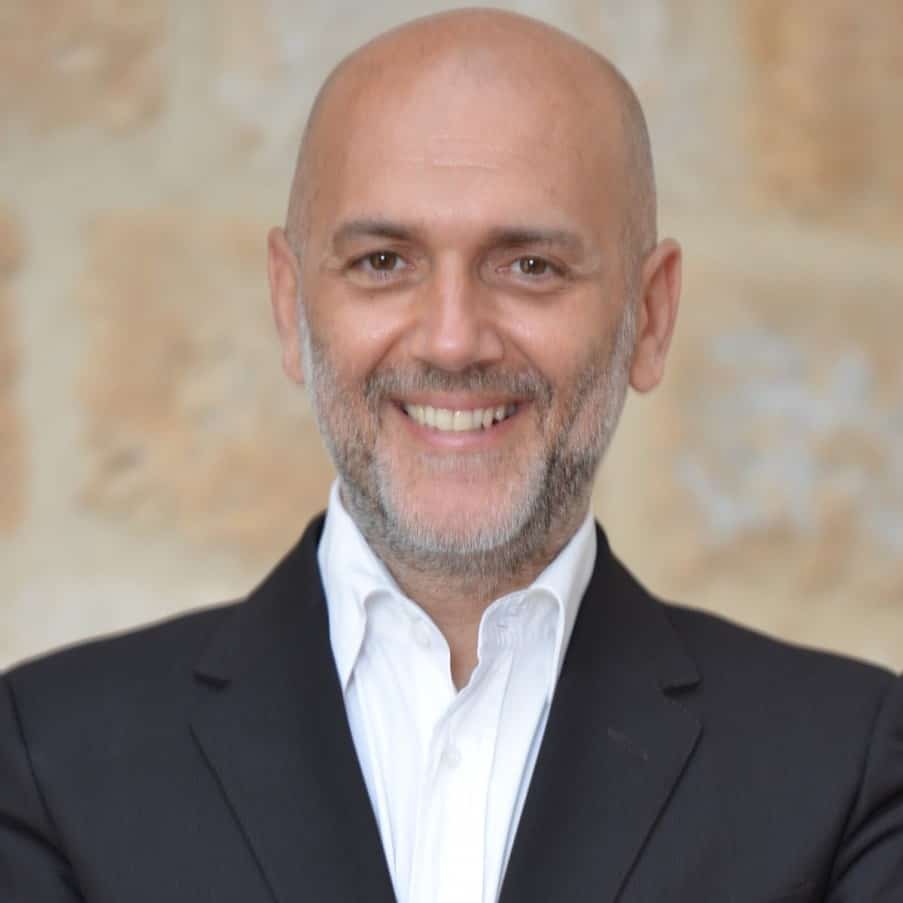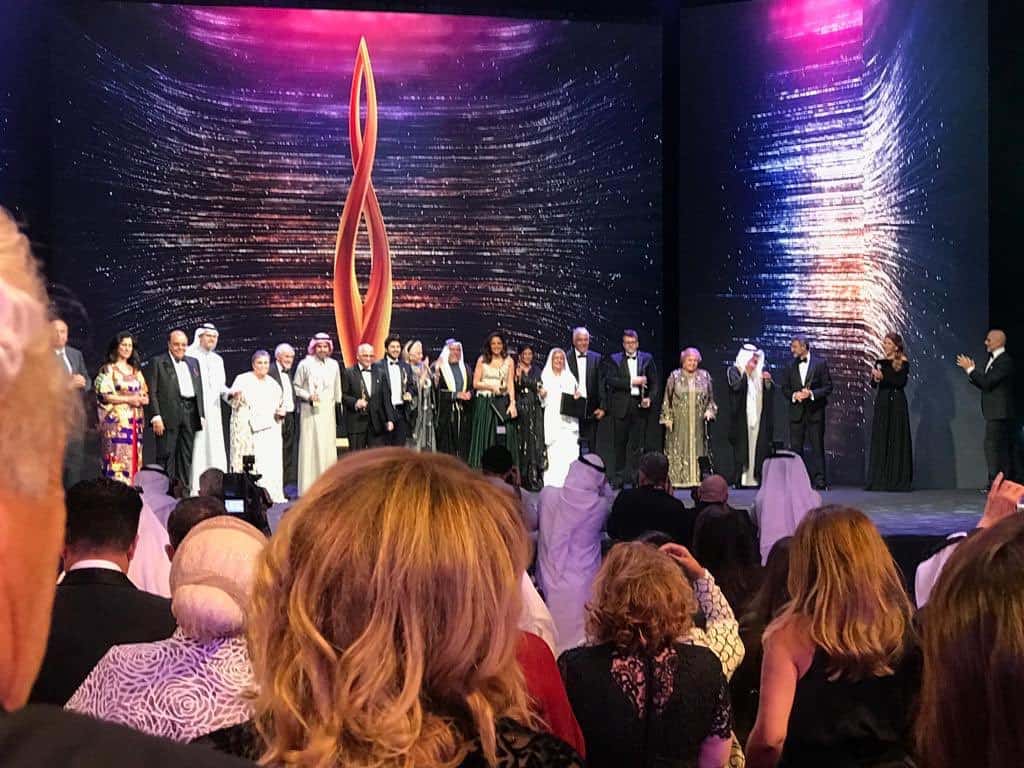DUBAI, UAE — Business, technology, and sustainability are the most significant in the world lately. Not only are these sectors attracting investments, but also their top leaders are awarded in most events in the GCC.
The initiatives show the GCC’s private and public interest in business, technology, and sustainability as a step forward to grow its economies and maintain a better life for its citizens.
UNESCO, Arab Thought Foundation, and many other organizations have issued vital reports on science, technology, and innovation during the past decade. However, in addition to the geopolitical circumstances Arab countries have experienced since 2010, their inability to achieve high economic growth rates exacerbated poverty and unemployment, especially among the youth who comprise most of these countries population.
During the same period, the science, technology, and innovation sectors did not significantly contribute to development, economic growth, or the business sector, despite particular triumphs in scientific research and commercialization in Arab countries.
In 2020, with the pandemic spread, some Arab countries showed how they were unprepared – scientifically in particular – for Covid-19 and its many problems. A lack of a cure for the virus, food and water insecurity, and economic turmoil led to more than two billion job losses.
On the other side, innovation and technology have helped countries like the UAE and Saudi Arabia to recover rapidly from the Covid-19 percussions.
For this and many other reasons, GCC governments and regional organizations are supporting technology, investing in it, and awarding its top leaders, especially those who operate in business, healthcare, and education.
Such awards boost creative practices based on a world-class framework, standard, new categories, and criteria.
Through the years, the Lebanese Organization, Takreem, has awarded Arab leaders for their skills and strenuous efforts in developing our communities. France, Lebanon, Morocco, and other countries have hosted Takreem’s event to support it. The last version was Takreem 2022 in Abu Dhabi – the UAE.
Why is 2022 special?

Ricardo Karam, the Takreem founder, talked about the mindset of 2022, which the event was inspired by, which is different from the previous years.
“In 2020, we witnessed the second most devastating, fatal, most destructive explosion in the history of humankind. Starting last year, we also witnessed and are still undergoing the bankruptcy of the banking system in Lebanon and its effects on our livelihood and daily life. All these circumstances put together made the last two editions of the TAKREEM Awards an opportunity to make a statement. In 2020, our statement was: We Shall not Give Up. In 2021, our statement was: “Beirut, Against All Odds,” Karam says.
In an interview with TRENDS, he added: “This year, the mindset is different; therefore, the statement is different too. This year is no longer about survival but moving forward and making change happen. Therefore, we chose Abu-Dhabi, because we genuinely believe that it is fertile soil for change and hope and positivity, and this is only one of the many things that make this year’s event different and special to us all”.
Awards Criteria
Every year, TAKREEM awards nine main categories. Each category has its criteria, but the one criterion all these categories, except the “International Contribution to Arab Society,” have in common is that the laureate must be of Arab Origin.
The other two criteria that the boards consider when evaluating the nominees common to all categories are impact and sustainability.
Karam explained: “We look for Individuals and Organizations that leave a positive and lasting mark in the lives of communities and populations, the economies, the cultural scene, and the societies they work in. We also make sure that the work they are doing is sustainable in two senses: 1- that they have the means to continue the same path, and 2- that the change they are generating is sustainable and can create more organic future local, regional, or global change”.
The nine categories are:
Young Entrepreneur
Excellence in Education
International Contribution to Arab Society
Humanitarian and Civic Services
Cultural Excellence
Environmental Development and Sustainability
Outstanding Arab Woman
Corporate Leadership
Scientific and Technological Achievement.
Takreem builds bridges between North Africa, the Middle East, the Gulf, and the Arab diaspora, creating a community of like-minded people and acting as a gateway for the region’s cultural, educational, scientific, environmental, humanitarian, social, and economic excellence.
2022 Most Awarded
Humanitarian and Civic Engagement has never been more vital than today in the face of the growing social, economic, conflict, and health-related problems in the Arab World.
Takreem laureates are working relentlessly to solve these difficulties and deliver solutions to the communities where they operate, producing genuine impacting positive change. But unfortunately, many countries in the Arab world today face limiting challenges at the economic, but also at educational and healthcare levels, as Karam mentioned.
In contrast, environmental sustainability and development are currently one of the most discussed issues in the global community. Clean water and sanitation, affordable and clean energy, sustainable cities and communities, responsible consumption and production, climate action, life below water, and life on land are just a few of the SDGs governments worldwide aim to achieve.
Underlining the irony in Lebanon, Karam says: “While efforts are being made around the World to ensure better living conditions for populations in developing and developed countries, we keep witnessing a downfall in the local sanitary and environmental situation.”
He said, “Today, and for the first time in decades, Lebanon is facing widespread Cholera due to the decrease in the sanitary and environmental conditions in the country. Yet, our laureates come to work in Lebanon in environmental issues and achieve successful results”.
Over the years, Arab countries have shown great interest in humanitarian issues and entrepreneurship goals for developing communities and providing knowledge and success for all people.
Yet, the lack of funds is always challenging, and geopolitical tensions and increased war fears are a constant difficulty.
Initiatives supported by organizations, companies, or governments play a significant role in embracing innovation, development, and human rights.








